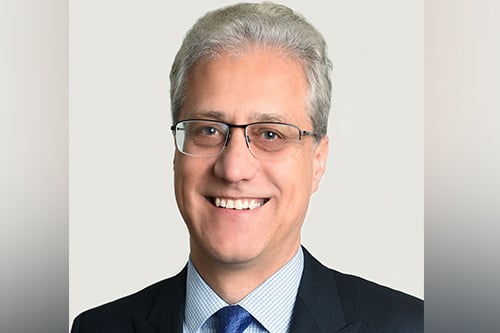New book argues that unwittingly bad advisors are harming clients by 'obliviously sleepwalking' through their careers

No one can accuse John De Goey of being a shrinking violet. Never shy to call out his own industry about what he believes to be failings over regulation and fee structure, the Wellington-Altus Private Wealth advisor has now released his second book.
STANDUP to the Financial Services Industry is a call to arms for investors to take on well-intended but unwittingly bad advisors who are “obliviously sleepwalking” through their careers providing harmful advice.
In typical De Goey fashion, he doesn’t mince his words. He told WP that 95% of Canadian advisors succumb to advisor bias and simply believe things that are not true like: running concentrated positions, chasing past performance and paying no attention to cost.
De Goey’s admittedly unscientific impression is that “almost all” MFDA advisors are doing it wrong.
He said: “They are recommending high-cost products based on past performance – and that's just wrong, the evidence shows it repeatedly. There's no ulterior motive; they're not trying to screw other people. They do it for themselves in their own accounts – even after they leave the industry. They honestly believe that this stuff is going to work.”
The spark for De Goey’s second publication – he also authored The Professional Financial Advisor – came from a paper written in 2016 titled The Misguided Beliefs of Financial Advisors in which three American researchers examined two Canadian MFDA firms. From a data set of 3,276 advisors and half a million clients, it put forward that advisors were believing things about past performance and cost that were not true.
De Goey was left exasperated by the lack appetite for change, blaming unwillingness among his peers to re-examine their methods and a certain amount of smugness and intellectual hubris within the industry.
Putting your head above the parapet is never easy but he is unafraid of becoming a pariah and wants to be a change agent for the wealth management industry.

He said: “I don't really care what other advisors think of me. I'm not accusing you of being wilfully sneaky or anything. What I'm saying is, you're obliviously sleepwalking through your career and need to step back and be more prepared to engage in self-examination about what you're doing, why you're doing it and, frankly, look at evidence.”
The people he really wants to cajole into action are investors and conceded that the criticisms he outlined in the four editions of his first book were roundly ignored by his peers.
He wants the public to realize that advisors have “misguided beliefs” and to take them task or threaten to move assets. That’s when real change will happen.
He said: “I've tried for pretty much the entire Millennium to get advisors to do the right thing for the right reasons to no avail. It's easy for an advisor to ignore De Goey because he's just another guy. But if your clients come up to you and demand answers and say, ‘Mr Advisor, you have two choices, change the way you give advice or watch as I walk out the door’, that rather focuses the mind.”
But if this is all so obvious, why hasn’t the industry changed? Why are advisors still peddling the same method that De Goey disputes? He believes that, despite years of research that show cost is a reliable determinant of performance and that past performance is not, most advisors simply follow the crowd while mutual fund companies have no interest in talking themselves out of profit.
The industry, be that regulators, product manufacturers, distributors or MFDA firms, reinforce the assumption that past performance means something and cost is unimportant, and De Goey believes advisors just absorb this message over time.
When it comes to fees, clients could save 50-100 basis points, anywhere from $100,000 to $400,000 over a lifetime for a six-digit account. Product manufacturers are, therefore, protecting a multi-million dollar delta, De Goey said.
“Advisors ought to know better, but they don't because they don't read the research. In the end, they just do what everyone else does. A fish doesn't know that it's in water, because it's been in water all its life. Most financial advisors don't realize they're getting bad advice, because that's the way they've been doing it since the day they got into the business.”
The reason the Toronto-based advisor believes change has to be investor-led is because regulators are guilty of “utter negligence” through allowing embedded compensation to persist and through the fair-dealing model, CRM1 and CRM2.
If policy is incapable of changing the landscape and the industry players themselves are not interested, De Goey said the resistance has to come from the investors themselves.
He said: “No one should care more about their money than the people who have got money at stake. The only way to overcome this is to go over advisors’ heads to their clients and get them to take action.”



